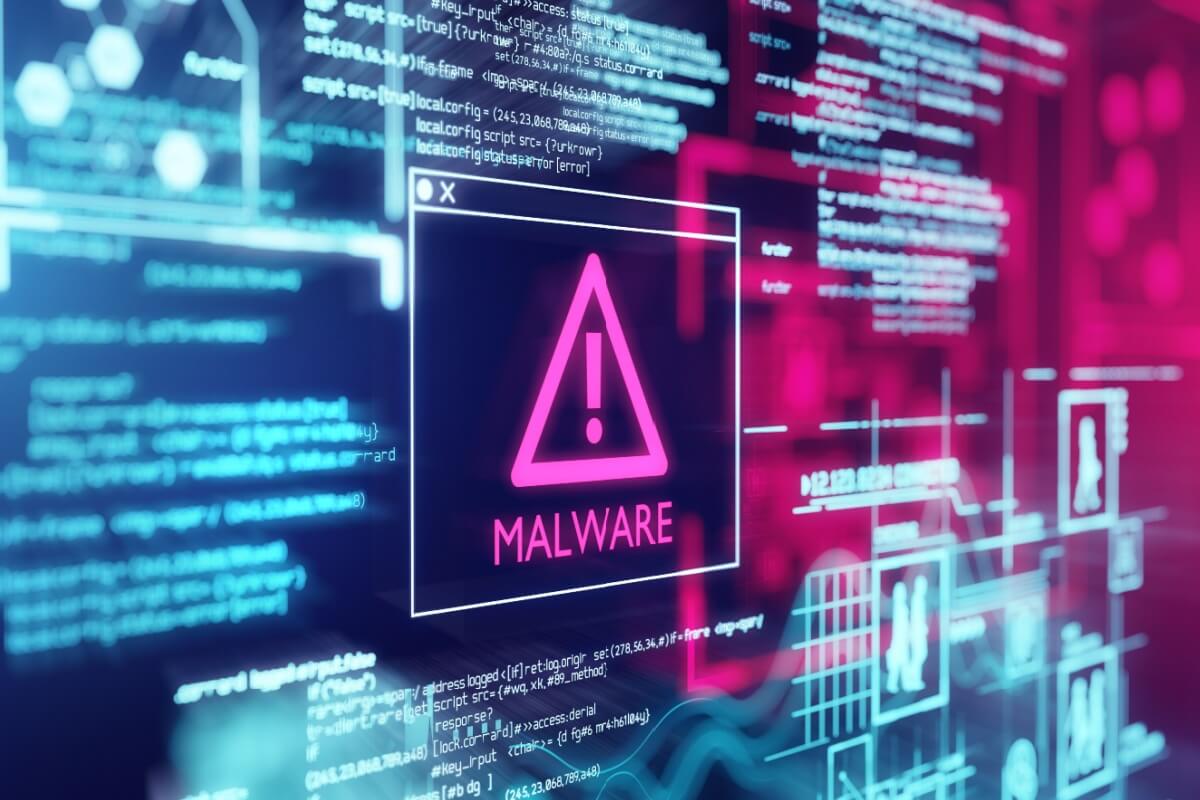
Security breach – recommendations for superior business protection
The current business environment is in close interdependence with digital technology, an element that offers numerous opportunities, but which, at the same time, exposes businesses to various technological risks. Among them are also security breaches, threats to which businesses in various fields and industries are exposed, which can cause significant financial losses, reputational damage and various legal sanctions.
Unauthorized access to confidential data and cyber-attacks can endanger the stability of any company and, therefore, it is necessary to take preventive measures that allow the management of the risks characteristic of today’s interconnected world. Technical prevention measures can contribute significantly, but they are not infallible and must be complemented by other tools, such as cyber insurance, which provide financial protection against various situations that can cause financial loss and other types of damage.
The article below provides information to entrepreneurs and other business decision-makers about security breaches and their consequences for companies, such as economic losses, reputational damage and legal penalties. You will also discover what a beneficial role cyber insurance plays and how it can be chosen effectively to protect the interests of the companies they run.
1. What are security holes?

Security breaches are real threats to private or state companies, manifesting in the form of unauthorized access to sensitive data. The theft or alteration of confidential information can be achieved through various methods, with significant financial, reputational or legal consequences.
The prevention of security breaches becomes from this perspective a mandatory step, which should not be neglected, regardless of the size of the business or the field in which it operates.
1.1. Definition of the concept of security breach
Any economic organization has certain confidential information related to its activity, business partners or even customers. Normally this data can only be accessed by authorized persons, their protection being ensured by various technologies, such as firewalls, antivirus programs or the need for authentication for access. In some cases these measures do not work, allowing malicious individuals access to databases that are supposed to be confidential. These incidents are known as security breaches, major problems that can affect any company.
Security breaches involve illegal access to information that is not public, such as business, personal, financial or other types of data protected by law. Incidents of this kind can occur at any time, unexpectedly, when the security of information systems is affected by technical vulnerabilities or human errors.
The business environment can be affected by different types of security breaches. However, they have a common element, namely the fact that they result in the loss of control over sensitive information, their access being made by criminals who seek to obtain illicit financial advantages.
1.2. Examples of security breaches
The business environment is increasingly dependent on digital technology due to the many benefits it offers. This dependence, however, also brings a series of challenges, securing confidential data being a mandatory measure. However, in certain cases, this protection is not adequate, for technical reasons or as a result of human errors, circumstances in which security breaches occur.
Unauthorized access or theft of sensitive data can differ in scale, impact and methods used, thus there are several types of security breaches that can be identified:
- Phishing attacks are some of the most common actions that can endanger the security of confidential data. These illegal activities are carried out by the attackers sending apparently legitimate electronic messages to various economic organizations or individuals within them. Some recipients may be misled by the messages and divulge information such as passwords, account details or banking information, which are then used by criminals to obtain illegal financial benefits.
- Malware is a type of information virus through which attackers can access secure databases. Once installed, these programs operate discreetly, allowing access to confidential information without detection. A special type of malware, increasingly used for criminal purposes, is ransomware, a virus that can block access to an organization’s internal data. The attackers later demand the payment of a ransom to unlock access to the companies’ own data, the sums of which can reach very high values.
- Human errors can often cause security breaches. Due to carelessness or insufficient training, some employees may make mistakes, such as losing an unencrypted device, sending confidential data to unauthorized persons, or not implementing the necessary security measures.
- Unauthorized internal access can cause significant damage. If an employee or internal contributor accidentally accesses confidential data they should not have access to and then uses it illegally, for example by providing it to competitors for a fee, various financial and legal problems can arise.
Understanding these examples of security breaches is essential because knowing them allows the necessary measures to be implemented to prevent them or to effectively manage them should such incidents occur.
2. The consequences of security breaches on economic organizations
Security breaches are major IT incidents that can negatively impact businesses of various sizes and types in numerous ways.
The effects can range from the interruption of normal activity for short periods of time to major financial or reputational losses, which requires taking the necessary measures to avoid security breaches as much as possible or to address the negative effects to minimize losses.
2.1. Economic losses caused by security breaches
Security breaches are significant threats for any economic organization, financial losses being elements that can endanger the stability of a company. Sensitive data owned by a company can be stolen or modified without right by malicious persons, which is usually associated with economic losses that include direct and indirect costs.
Direct costs arising from a security incident include:
- The amounts for technical investigation and IT consulting necessary to identify the extent of the attack and the vulnerabilities that made it possible can be significant, depending on the complexity of the security breach and the necessary resources used;
- Security breaches are usually manifested by the loss of access to certain data and systems, their recovery usually involving additional expenses. Very large sums are recorded especially in the case of ransomware attacks, with criminals being able to demand hundreds of thousands or even millions of euros for restoring access to confidential data;
- In the case of security breaches that result in the exposure of customers’ personal data, the law obliges them to be notified and to be offered certain services to guarantee the security of their finances. In addition, it is possible for that company to receive significant fines due to non-compliance with legal regulations, such as GDPR.
Indirect costs include lost revenue from operational disruptions, which in some cases can lead to periods of inactivity of several weeks, image damage resulting in lost customers and, implicitly, decreased sales, as well as diminished stock value due to loss of investor confidence in the company’s ability to protect confidential information.
In addition to direct and indirect costs, security breaches can also bring other economic losses, such as those related to receiving legal sanctions or those for rebuilding and improving security to avoid other incidents of this kind.
2.2. The reputational damage created by security breaches
A company’s reputation is its business card and one of its most valuable assets. Security breaches can have a significant reputational impact, leading to a loss of trust from customers, business partners and other stakeholders in the affected company. Lack of trust poses a significant threat to the relationship between firms and stakeholders, as they may easily choose to work with competitors that offer higher security of confidential information.
The lack of appropriate security measures can lead to reluctance to cooperate, decrease the value of the company’s shares and cause major problems in the medium and long term. Problems can arise due to the involvement of the media and social networks, as security breaches are usually news that spreads quickly in the digital environment.
In the event of security breaches, companies must employ appropriate strategies to regain trust. Among the measures that have proven useful in this regard are open communication with affected customers, offering them compensatory measures and additional investment in IT security.
2.3. Legal sanctions for companies in case of security breaches
The expansion of the use of IT technology in the business environment has led to the development of dedicated legislation aimed at protecting the personal data of customers and other interested parties. Companies have the obligation to ensure the security of the confidential information received, failure to comply with these requirements may attract legal sanctions, from fines to the restriction of certain activities.
Economic organizations in Romania use in this sense a legal framework that includes the General Data Protection Regulation (GDPR), a norm valid throughout the European Union. According to it, all companies must take the necessary technical and organizational measures to protect personal data. Moreover, the GDPR obliges that, in the event of a security breach, companies notify the authorities and customers within a maximum of 72 hours from its identification.
The GDPR regulation provides for the sanctions that can be received if non-compliance is identified, the fines can reach up to 20 million euros or four percent of the annual turnover. In addition, administrative sanctions are provided for, as well as the possibility of legal action against the guilty companies by dissatisfied customers. Avoiding this last problem is possible by concluding a policy of professional liability insurance through which the financial losses involved in such disputes.
3. The role of cyber insurance for security breach risk management – recommendations for selecting effective insurance
Threats of security breaches and other cyber-attacks are constant problems faced by companies in Romania, none of which can be fully prepared to completely avoid such situations. This is why modern tools like cyber insurance, a policy specifically designed to provide protection in this area, are useful. Among the available options is IT professional liability insurance, which offers numerous benefits to organizations that use it.
Thus, they can cover both the direct and indirect costs generated by security breaches, while also providing legal protection through access to legal advice to resolve any disputes. To benefit from these advantages, a careful choice of policy is essential, taking into account the specific needs of the organization, the types of risks covered and the frequency of attacks, as well as the limits of coverage offered.
Cyber insurance is not only valuable for its financial support, but also for its proactive contribution to organizational safety. Typically, insurers provide recommendations for preventing cyber risks, including adopting best practices and improving technical security systems.
In conclusion, security breaches represent a major problem, which can have significant financial, reputational and legal consequences for any organization in Romania.

